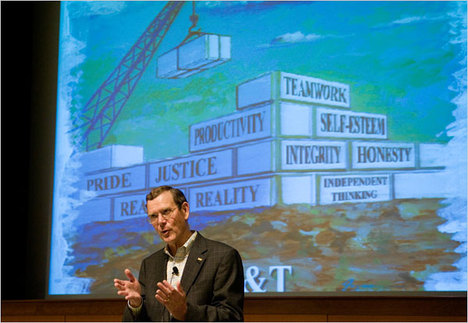(p. A7) BERLIN — Could the heir apparent to Chancellor Angela Merkel be a wealthy, handsome 37-year-old baron who loves rock ‘n’ roll?
The baron, Karl-Theodor zu Guttenberg, vaulted to prominence this year when he took over the often dull job of economics minister in the midst of the financial crisis. His independent stand on a thorny economic matter earned him the respect of voters.
. . .It was his independent streak that earned him the respect of voters, rather than just their curiosity. Mr. Guttenberg broke ranks with Mrs. Merkel over how to handle the troubled German automaker Opel. Mrs. Merkel supported a consortium led by Magna International, a Canadian auto parts maker, and Sberbank, a Russian bank. Mr. Guttenberg favored bankruptcy, and even offered to resign just months into his tenure.
He lost the battle, but gained credibility with voters — an important commodity with a disenchanted electorate that has largely ignored the coming vote. At the big kickoff campaign rally in Düsseldorf for Mrs. Merkel’s conservative Christian Democratic Union, Mr. Guttenberg was the only politician to receive a spontaneous ovation from the crowd of 9,000.
For the full story, see:
NICHOLAS KULISH and JUDY DEMPSEY. “Aristocrat’s Rise Shakes German Doldrums.” The New York Times (Weds., September 22, 2009): A7.
(Note: ellipsis added.)





